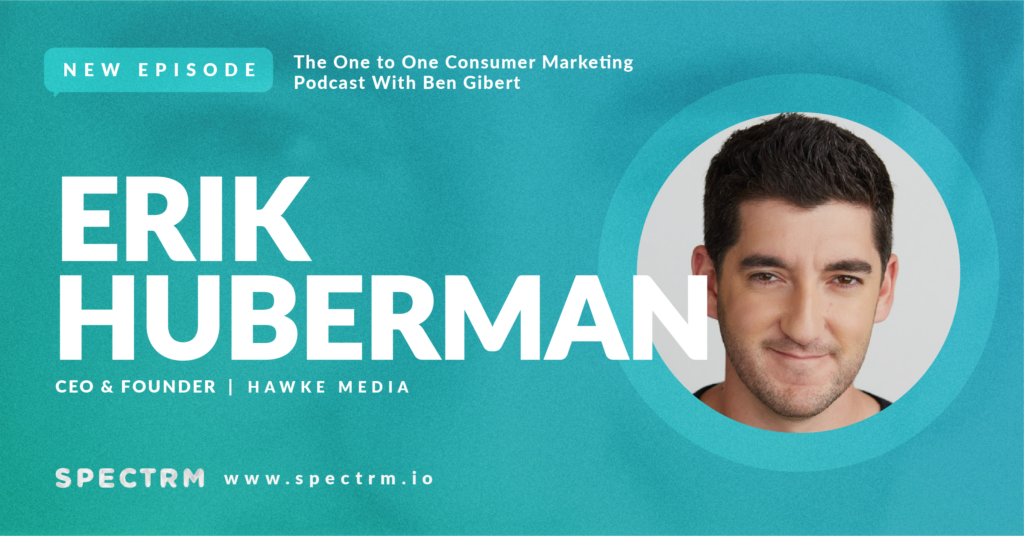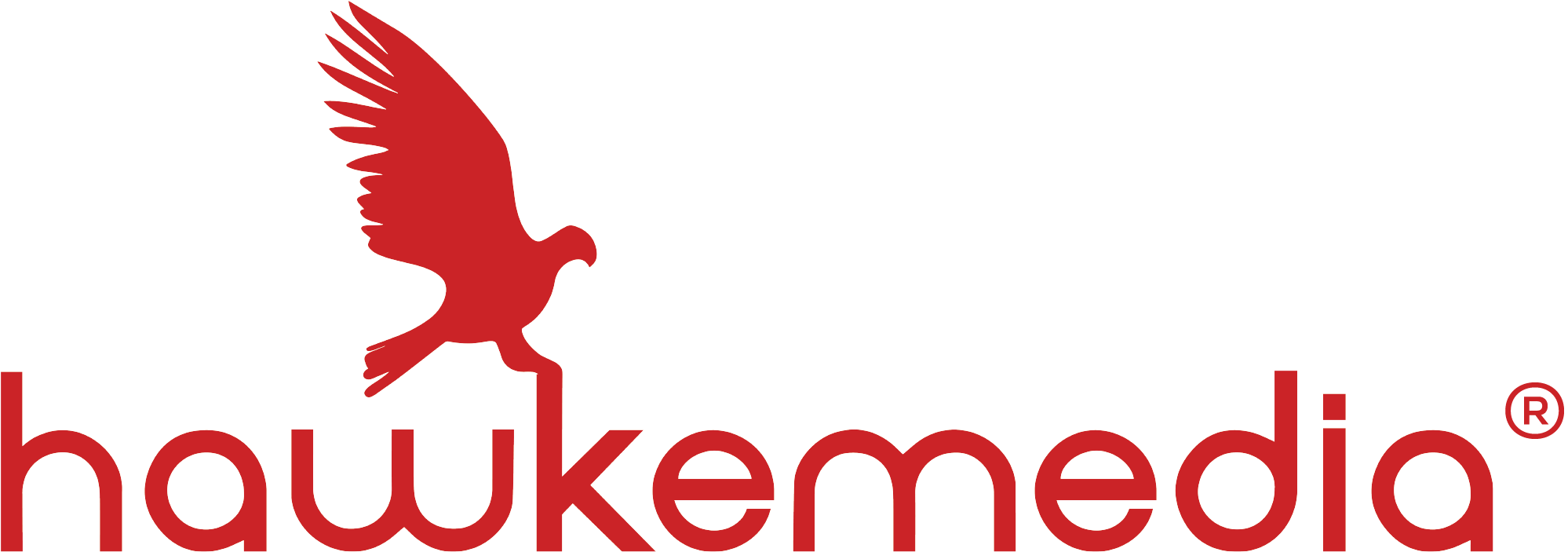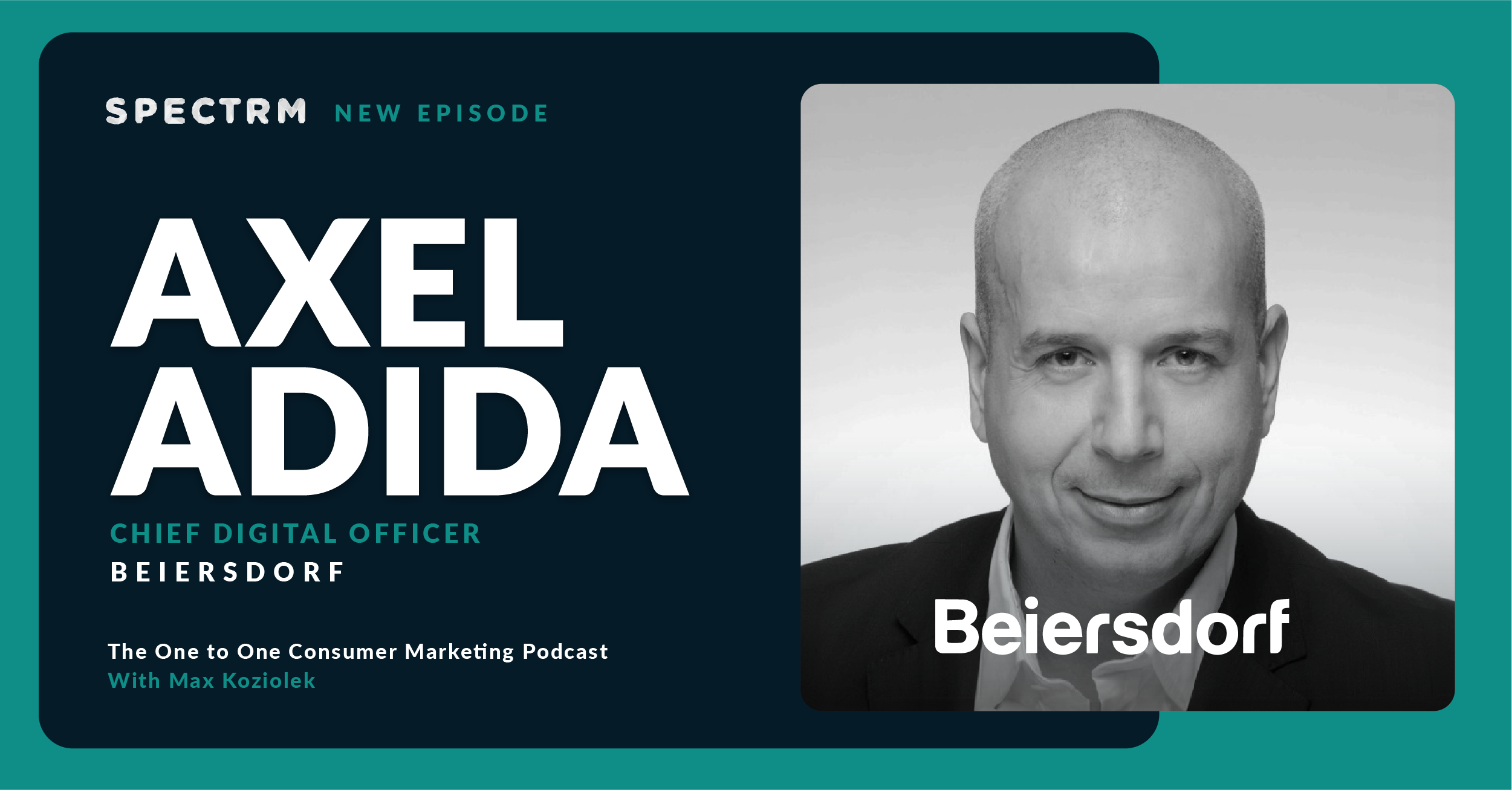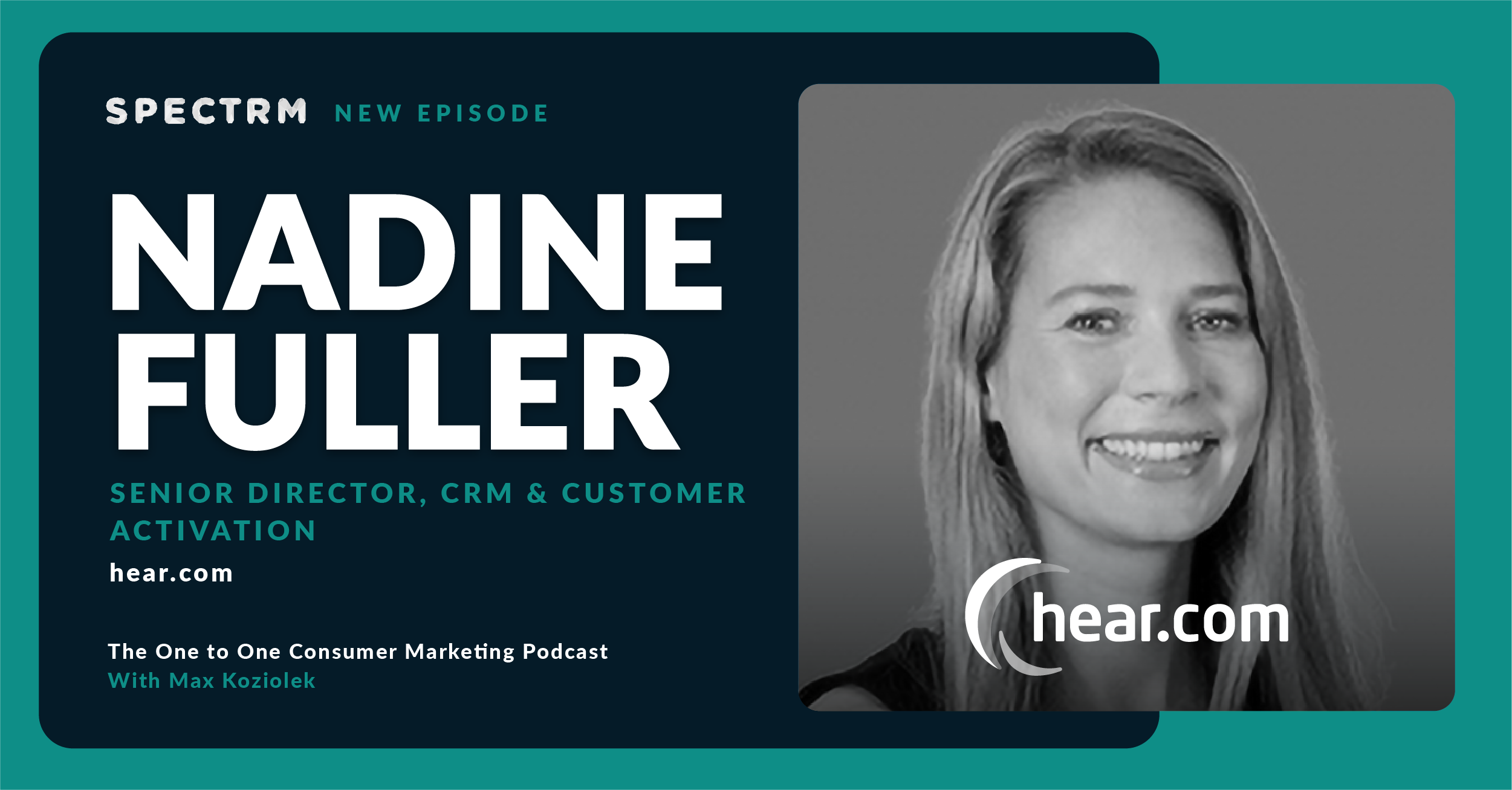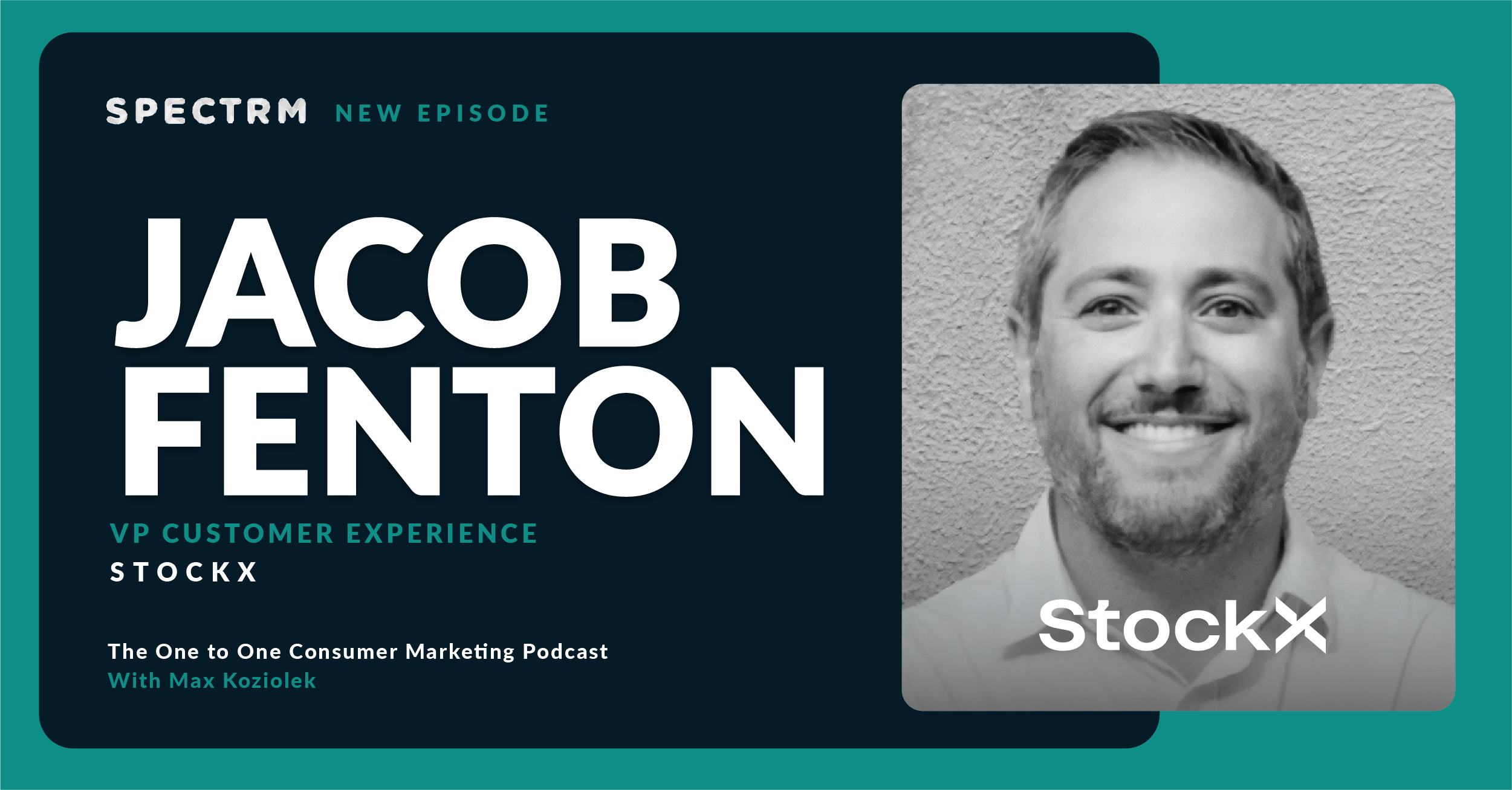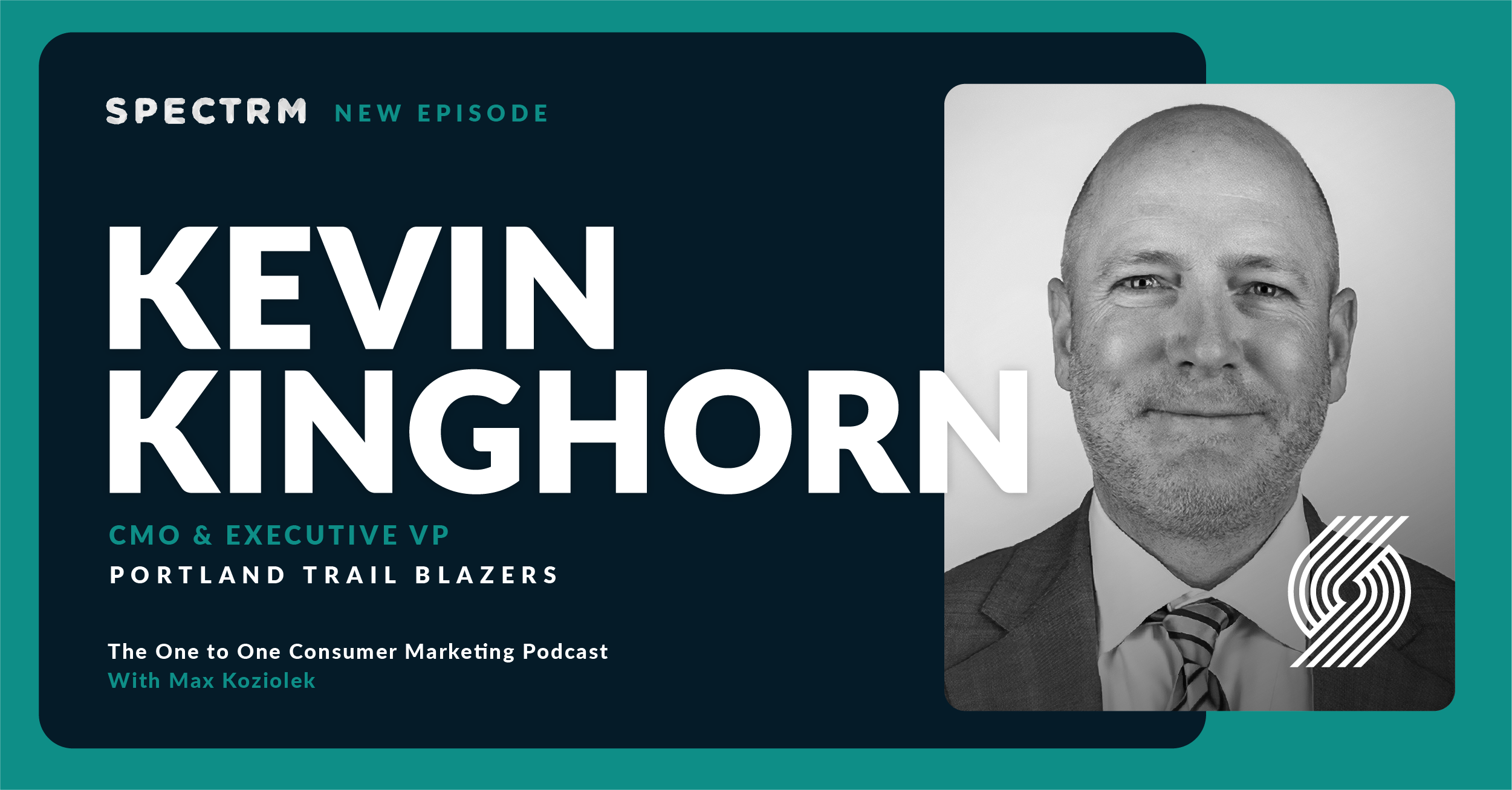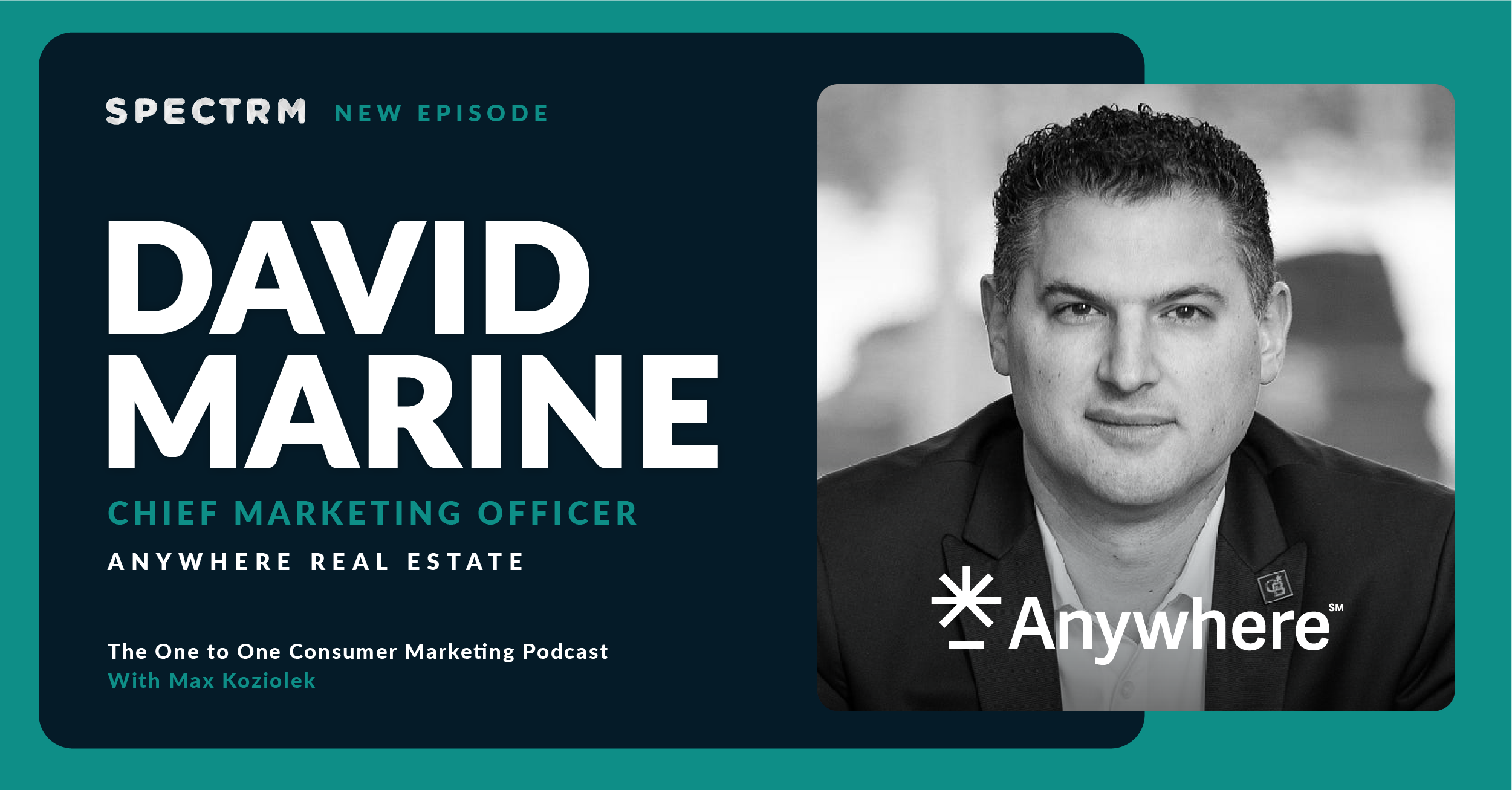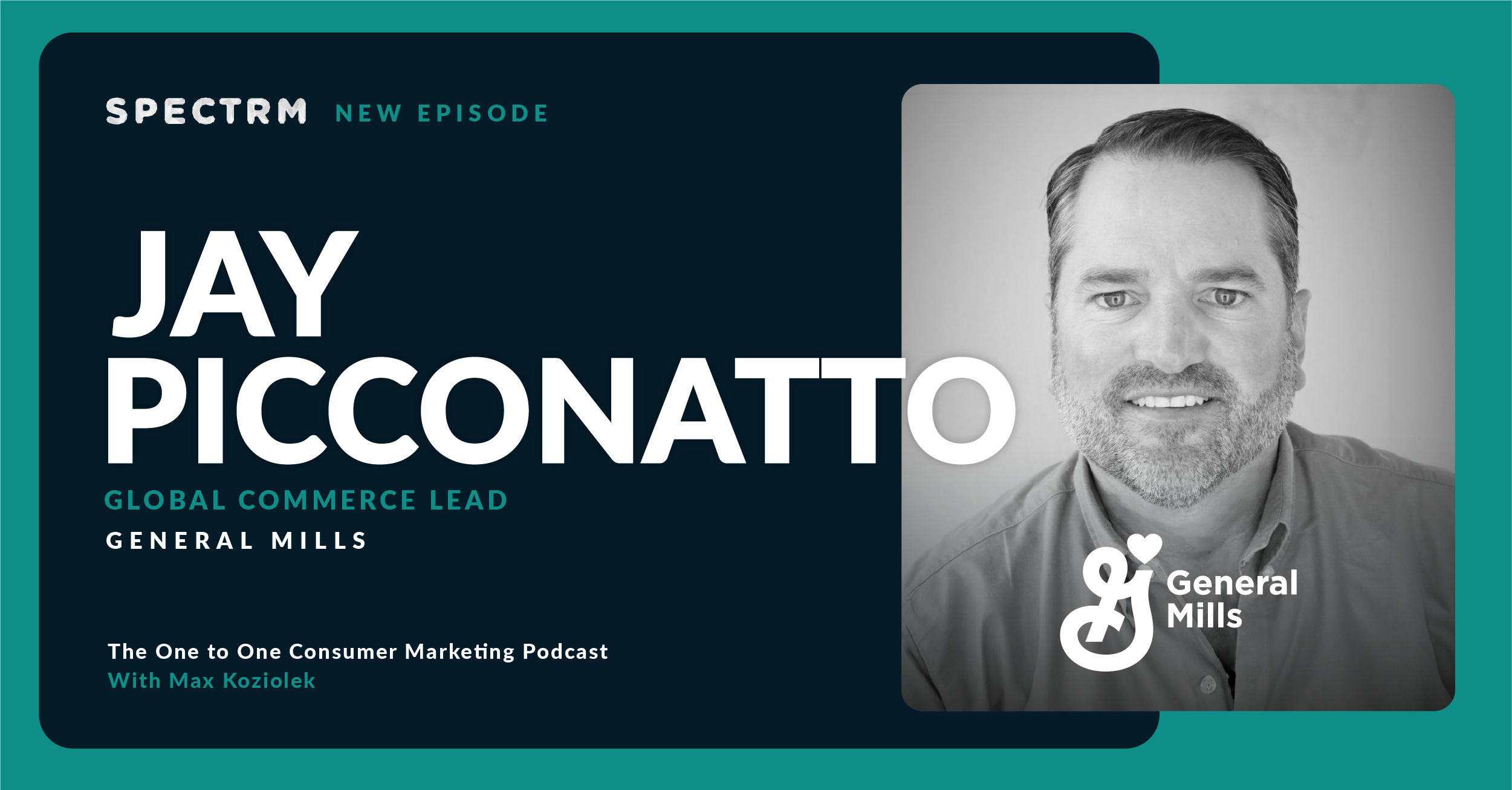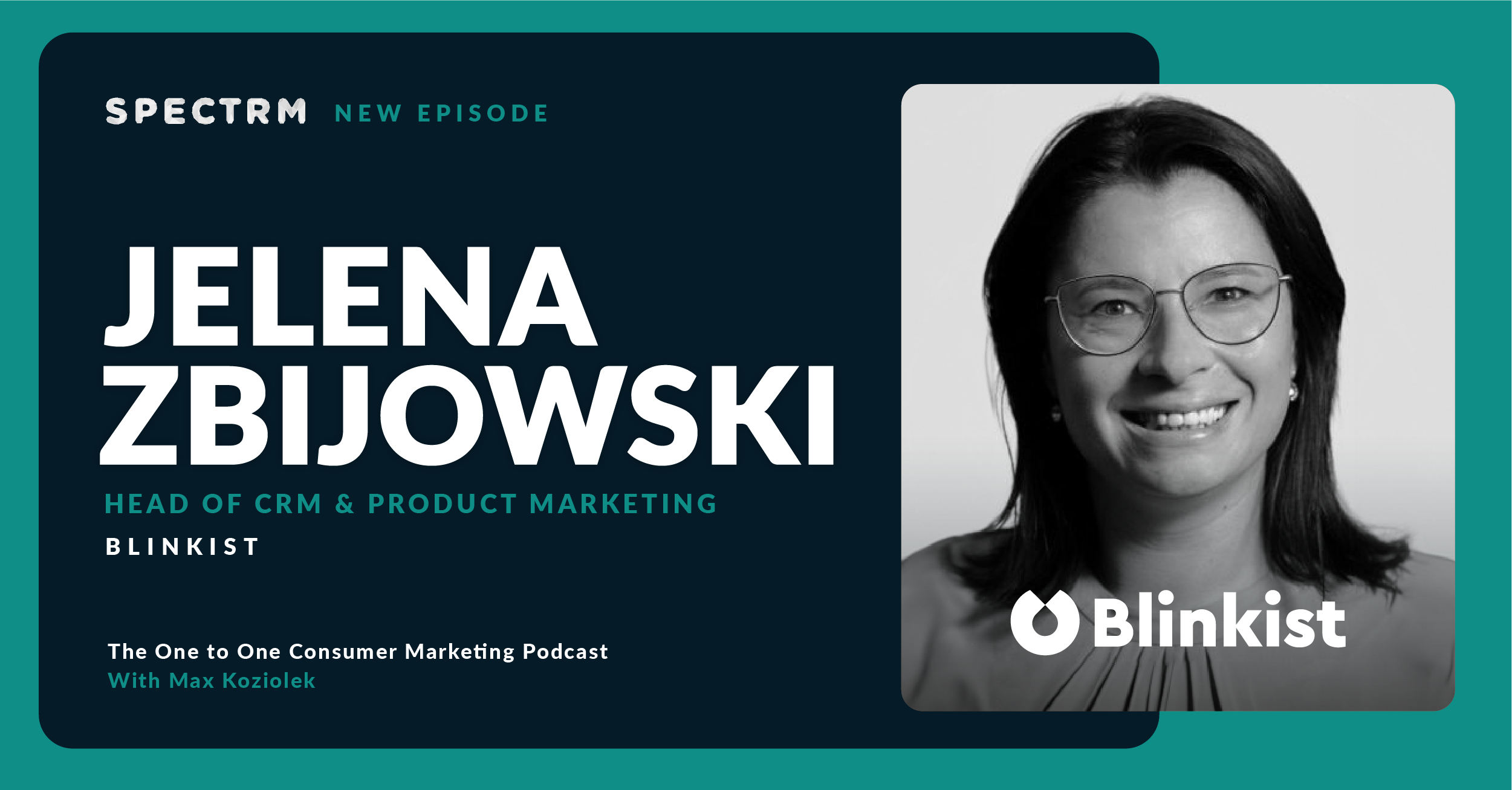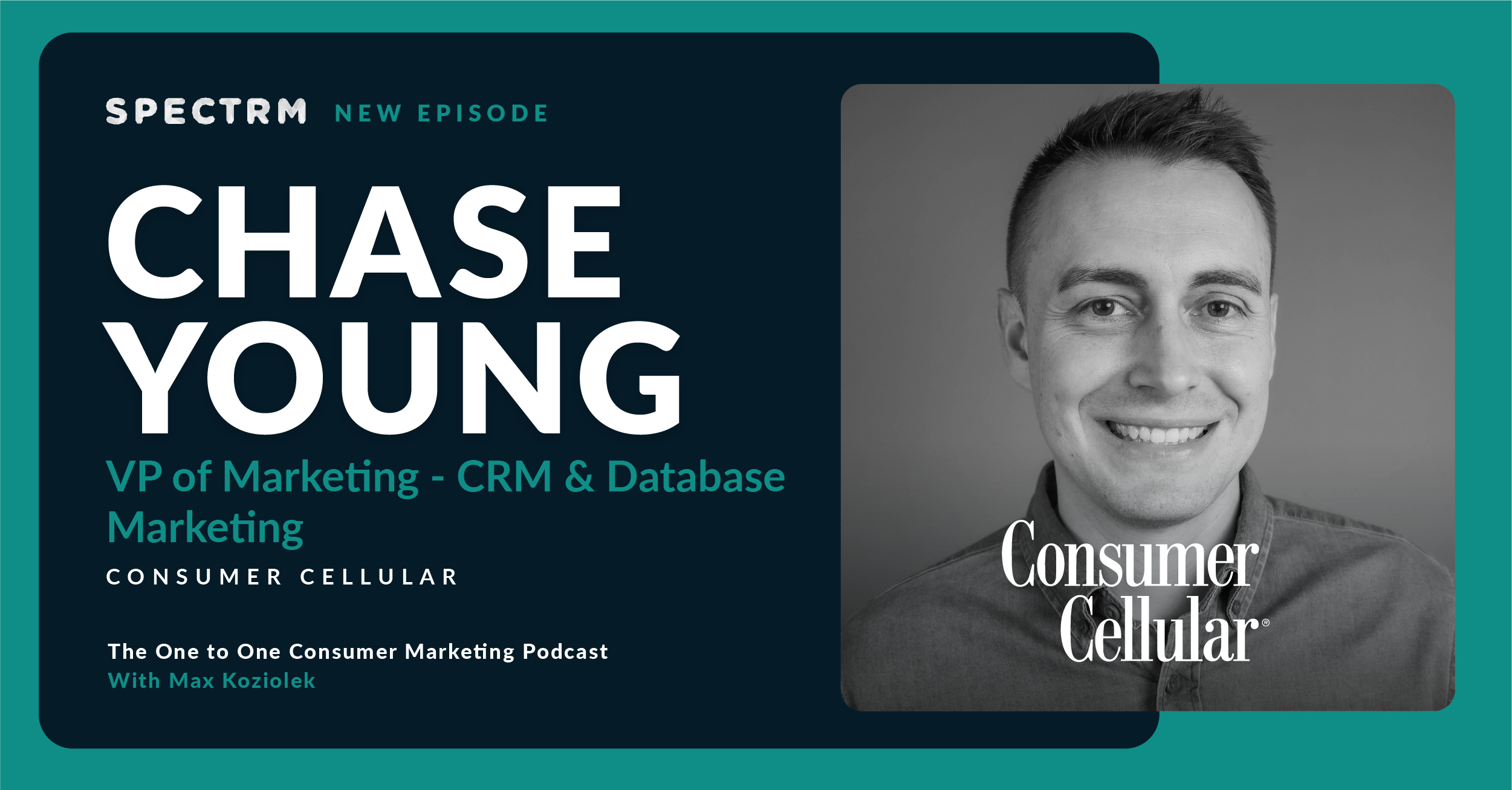Summary
In this episode, Ben speaks to Erik Huberman, CEO & Founder of Hawke Media. Together they discuss the current state of marketing today, how trends are pointing upwards and not towards a recession, the benefits of doing marketing with both an agency and in-house, and why basic marketing techniques still provide the best returns.
Topics discussed
- How brands can evaluate whether to do their marketing in-house or outsource to an agency — and why the best solution is a combination of both, not either/or.
- The impact — or lack thereof — that iOS 14 had on the ability to measure marketing efforts, and why useful data is still available to track.
- The current state of consumer marketing, and how trends show that businesses are continuing to grow despite the rumors of recession.
- Why Hawke Media collects data from the companies they work with, what metrics they track, and how they use benchmarking to inform their strategies.
- Which channels are currently providing great returns for brands, which are up-and-coming, and which are lagging in their returns.
- Why personalization is overvalued and how it can be improved to offer hyperspecific assistance to customers through practical means.
- Where the future of marketing is going, and how AI — and specifically ChatGPT — will help shape it.
It’s just Modern Marketing 101. The basics honestly work. If you have a good product, and you run the basic scalable marketing approach, and you have good people that know how to use the platforms, you should be successful. Good product is the variable. If you have a good product, people will come back because repeat purchasing, word of mouth, all those things are really what drive business success. You can’t buy every customer every time.
Guest biography

CEO & Founder Erik Huberman launched Hawke Media in 2014. Now valued at over $150 million, Hawke Media is the fastest growing marketing consultancy agency in the United States. Prior to its launch, Erik successfully founded, grew, and sold two e-commerce companies by the age of 26. Erik has since continued to strategically expand his business portfolio inclusive of a handful of company acquisitions, the 2018 launch of Hawke Ventures which reached a closed single fund of $5.6 million, the 2020 launch of his own podcast, HawkeTalk, the 2021 launch of HawkeZ, an agency offering brands the tools needed to tap into GenZ and most recently authored his own book, The Hawke Method.
As a serial entrepreneur and marketing expert, Erik has been recognized by his industry peers throughhonors and awards including, Forbes Magazine’s 30Under30, CSQ’s 40Under40, and Inc. Magazine’s Top 25 Marketing Influencers just to name a few.
Company overview
Hawke Media is your outsourced CMO. We make great marketing accessible to all, regardless of your company size or industry. Our service experts, à la carte offerings, and month-to-month contracts give you the flexibility you need to get the results you want.
Industry: advertising services | www.hawkemedia.com
Subscribe to the podcast newsletter
Transcript
00:00
Welcome to One to One: The Conversational Marketing podcast dedicated to helping modern marketing teams succeed in a messaging first and privacy first world. In each episode, we’ll interview a marketer who is winning with conversational marketing to distill best practices, lessons learned, and actionable takeaways. Here’s your host, Ben Gibert, VP of Marketing, Spectrm.
00:33
Ben Gibert
Hey everyone, and thanks for listening to and watching One to One: The Conversational Marketing podcast. Today I’m speaking with Erik Huberman, CEO and Founder at Hawke Media. Erik, thanks so much for chatting with me today.
00:46
Erik Huberman
Of course, thank you for having me.
00:48
Ben Gibert
Yeah, a pleasure. I’m really looking forward to hearing about your experience building an agency, being CEO, seeing, I’m sure, digital marketing shift through many different trends and disruptions. I think before we get started, I’d love to hear you tell us more about yourself, your background, and maybe what a typical day looks like as CEO of Hawke Media.
01:09
Erik Huberman
Sure, yeah. Background is ecommerce. I built and sold two ecommerce companies about a decade ago and then started advising and consulting for a bunch of large and small brands on just how to drive revenue growth using marketing. It was when Facebook ads were starting to get popular and all these trends were starting within that year, basically, and a lot of bigger companies started to realize, oh, I need to pay attention to this. It became that navigator for a lot of brands and was consulting to help them figure out how to navigate it. Through that, over the course of about six months, found that the marketing landscape really sucks and it’s still not necessarily that much better. I’ve tried to fix it myself, but only so much you can do where it’s basically there’s two options to execute marketing as a business owner, it’s either hire a team in house or hire an agency.
01:51
Erik Huberman
I found hiring in house wasn’t cost effective, that’s if you can find and attract great talent, which only so many businesses can really attract the best. It’s important in marketing because it’s an infinite opportunity cost. Even if you somehow bring in great talent, you can’t afford them. Now you’re operating in a vacuum and you have no idea what’s going on in the market. That’s why every major company uses agencies. The problem is 99% of agencies have no idea what they’re doing. The few that are good tend to get really expensive on contracts, high minimum, something else that makes them hard to work with. The end result is, basically, if you want to get into marketing, you’re going to either have to really cough up and be a big company, or you’re screwed. That just didn’t make sense to me. Under the mission of accessibility to great marketing, meaning let’s be the best at what we do, but really easy to work with.
02:33
Erik Huberman
I hired a small SWAT team of people to help these companies. It was like a Facebook marketer, an email marketer, a web designer, a fractional CMO, et cetera, seven people. Went back to these companies and said everything’s a la carte month to month cheaper than hiring in house, but we can spin up what you need when you need it and ebb and flows, your needs change. And that’s how we started. We turned nine years old on January 13 and we’re over 200 people. We’ve worked with over 4000 brands and yeah, we’ve been able to really scale and grow and so it’s been a fun ride. Now we have run our second venture fund. We’ve raised $25 to $50 million. We have a financing arm. We have an AI tool that basically running over 8000 companies, marketing data, and revenue data through it in real time to be able to benchmark companies, have a real estate family office, have a bunch of other stuff going too.
03:18
Ben Gibert
Nice. Well, there’s so much there that I want to unpack that I’m sure we’ll get the opportunity to do that. To start with, I think one thing stuck in my mind you mentioned like the infinite opportunity cost of hiring a bad marketer. I’d love to touch in on that. I think before you do that, you obviously zeroed in on a pain that everyone feels right? Like hire in-house versus go to an agency and the specific reasons that’s so painful for either business owners or marketing leaders at companies. You mentioned some of the reasons for that, but can you dig into a little more detail there and why you did what you did?
03:53
Erik Huberman
Well, I think the biggest fallacy is the idea that it’s binary. I hear it all the time and I’ve heard it for a decade. Like, oh, we’re taking everything in house. Why the f*** would you take everything in house? Why do you think? There’s obviously pros and cons to both. Why not take the pros of both and try to eliminate the cons? Like as someone that runs an agency, do some stuff in house and do some stuff with an agency and those needs may ebb and flow and change as your company changes. And that’s okay. That’s why we built this, to be flexible. I built this because it’s what I wish existed when I ran my own ecom companies. So the idea that binary is crazy. So I think that’s number one. Yeah, in terms of pain points, this is a hard thing to hear, but again, 95% of companies out there are not sexy.
04:34
Erik Huberman
People will take the job. They might enjoy the job, but the best marketer out there doesn’t want to work for your company unless you are the sexiest company out there. If you’re not Nike or Dollar Shave Club when it was in its heyday, the best marketers are not running through your door to interview it’s. The people that need a job because they didn’t hack it somewhere else. Like generally, honestly, or maybe you’re lucky and you find that unicorn. That really what you want to bet your company’s marketing on? Which again has an infinite opportunity cost, meaning there’s always more money to make and better returns to make. There’s infinite opportunity and returns on sales and marketing. Now obviously there becomes limitations where it is infinite, but good luck getting to that point. Going with someone mediocre is a huge cost, a huge opportunity cost. That’s the issue is a lot of these people.
05:21
Erik Huberman
Instead of hiring a great Facebook agency where for us, as an example, we spent a couple of hundred million dollars on Facebook, we have a full team there, we interact with them, we know what’s coming down the pike, we know best practices, we know as they’re changing. We saw iOS 14 changes first. We knew how it affected hundreds of companies at once. We found fixes for it very quickly. You can’t compete with that internally with a Facebook marketer you found off the street that has five years Facebook experience and you’re frankly going to pay them more than you’re paying us. It’s like it is a ridiculous thing to try to build everything in house. That being said, what we usually say is if you need high level expertise part time, that’s when we come in. When you need low level expertise full time, we’re expensive.
06:02
Erik Huberman
We are a markup on heads. So there’s an efficiency to that. When we can have a person work for 10 hours on your company and 10 hours on another, even though you’re paying a markup, you get an efficiency. If you need someone that’s just going to grind out tons of content, do it in house. Social media management. Again, unless you’re just looking for someone to manage that and get it off your plate, we’re cheaper from a cost perspective than hiring someone full time on almost every service. Sometimes you want someone that’s in it all the time and that’s not when you’re going to hire someone like us. That balance is what we find with a lot of companies and we volunteer it. We say you should do this yourself, we’re going to keep this and that’s our ongoing relationship. Trying to build it yourself is really tough.
06:40
Ben Gibert
Yeah, absolutely. I mean, I think you touched one thing, especially for marketers, right? That idea of high expertise in a particular domain. It’s difficult to always find the perfect expert, but that’s exactly a good solution to externalize some of that or to bring in an external contractor or an agency. If you need a core function in house, I’ve also found like from a content perspective, sometimes content is one of those things, especially in certain areas where having consistent expertise and helps, really helps to establish a leadership. I mean, you mentioned Facebook, I think that’s you also mentioned iOS 14. I’d love for you to kind of walk through some of the ways in which working with a bunch of companies, like the challenges you saw iOS 14 coming down the pipeline. I think that was one that obviously scared a lot of marketers. It continues to scare a lot of marketers.
07:26
Ben Gibert
There are obviously ways to solve for it. What are some of the things that you found?
07:29
Erik Huberman
Go back to my first statement about marketers, and 99% are full of s***. You land on why people are having so much problem with iOS 14. It’s so funny because I have this conversation with business owners and you can see like the epiphany where it’s like so iOS 14, what did it actually do? It eliminated cookie tracking from Facebook on Apple products. That’s what it did. So few things. What does that affect? Well, one thing it doesn’t affect is people’s spending habits on Facebook. I don’t care if you can track them or not. People still click ads and they still buy s***. The idea that you think that your revenue from Facebook actually dropped 80% because of an iOS update is crazy. And it’s not what happened. And that’s what’s really fun about this. Now you have companies like Triple Whale and other one that’s doing really well, Northbeam, that show this.
08:15
Erik Huberman
What happened was Apple cut off Facebook’s tracking. That’s it. The ads didn’t stop performing because of it. What we’ve seen is just use third party tracking. It was a direct assault from Apple on Facebook. The belief is it’s because Facebook started talking about being the WeChat of the US. In the one stop shop which would take power away from Apple. Apple said, f*** that, let’s go to war with Facebook. Facebook can’t really fight back because if Apple bans Facebook on Apple products, Facebook’s done. It is a crazy battle of the titans right now because Apple has the power and they took away some of the power from Facebook, and only because of tracking. What’s fascinating about this is Facebook doesn’t want to admit it. It has this new algorithmic tracking, that is completely inaccurate. Facebook used to track very accurately on a 28 day look back window.
09:02
Erik Huberman
Someone clicked an ad you could track for 28 days if they made a purchase. In ecommerce, the average sales cycle across ecommerce is about 28 days. That’s about average. It’s four to five weeks, but depending on the price, depending on the type of product. 28 days is a fine average across the board. If you have a higher price product that would cause problems like $300 products can take three months to purchase, you’re still only tracking 28 days. A lot of those types of products had to have their own tracking to be accurate. Now they shrink that from 28 days and being pretty accurate to seven days, and not accurate. If you’re a company that your entire Facebook returns have always been reported on a 28 day window, and all of a sudden they’re reported on a seven day window. How do you think that makes your returns look?
09:43
Erik Huberman
Pretty bad. Especially because the average person takes a little while. So it’s not linear. It’s not like you’re seeing one quarter of the turn. Sometimes you’re seeing less than a quarter of the returns. The irony of all this is because there’s so many idiot Facebook marketers out there, they literally just take the platform as gospel and go, well, it says your ROAS is 0.6, so I guess it’s not working. You end up with Facebook having declining revenues and the average shopify site in Q2 and 3 of last year declining by 20% because everyone just pulled off Facebook and said it’s not working because they take numbers as gospel. Not a smart move. If you just took a second to get third party tracking, or even just look into the backend of Shopify, you can find where did people originate, let’s say a Facebook ad, and what is the average purchase cycle and when and you could actually get these numbers.
10:28
Erik Huberman
We had one client like this where Facebook was reporting a 1X ROAS pretty much evenly, which obviously doesn’t make sense because you have a cost of goods, et cetera. Like you’re spending a dollar to make a dollar, but you have costs, you’re screwed. When we ran the numbers in the first month, they were actually making 15 times. It’s just Facebook was only tracking one, so they thought they were spending 100 grand a month to make 100 grand. They were spending 100 grand a month to make $1.5 million, and they’re about to turn it off. We’ve saved a lot of companies from doing that. We’ve also had a few clients that just said, I don’t believe you. You think you’re smarter than Facebook, you’re idiots. And their businesses are gone. Like, we’ve actually watched people literally self sabotage their business because of a Facebook dashboard.
11:07
Erik Huberman
That is the main change with iOS. Again, consumer behavior. Consumer spending was an all time high in 2022. People didn’t spend less money. People didn’t stop shopping. They just went to people that actually stayed aggressive and I guess, frankly, in the wrong business. Again, this is the problem with trying to do it yourself, because if you don’t see, oh, wait, these numbers, like these companies, and the revenue is still doing great, like, oh, the companies that stuck with Facebook are still crushing it. It’s not a problem of Facebook. Something like, we have that context if you’re doing it on your own. I talk to clients about this sometimes. I’m like, let’s say it’s a t shirt company. It goes, hey, we’re bringing in-house. Yeah, I try to sew my own t shirts in my garage, too. Why would you do that? You’re going to do a much shittier job and it’s going to cost you more money.
11:48
Erik Huberman
Good luck. That’s going back to that. Yeah, the big iOS thing is like, again, Facebook and Instagram ads are performing just fine. TikTok is really caught up. TikTok is also doing very well. We have tons of clients making tons of money still on those platforms in real time.
12:02
Ben Gibert
Yeah, I think you touched on so many good things there. I think the fact that it was also just like a land grab Apple to Facebook, I know a lot of marketers have talked about that, but it was also an insane PR win on the part of Apple that the entire thing was framed to the public as a privacy play, which is genius. Genius PR.
12:21
Erik Huberman
Google said they were going to get rid of cookies because of privacy, but all they were trying to do is create their own cookie. When they figured out they couldn’t do that, they just canceled the whole plan.
12:30
Ben Gibert
Yeah, and I think also you touched on it so well as well. Right. It’s gone were the days of just kind of funneling money into Facebook without understanding anything about the platform. I think what was so powerful about Facebook’s business manager and marketing therein at first was that it made everybody and their grandmother able to create ads and run campaigns and feel like they were on top of things, when clearly a bit more nuance was necessary to understand what’s really going on. And you’re absolutely right. The problem is the measurement problem.
12:57
Erik Huberman
Right.
12:58
Ben Gibert
It’s not that the revenue isn’t there, and it’s not that there still aren’t great opportunities on Facebook, but if you have the mindset that you can only do things you can measure, and that’s all that matters, then you’re going to make some pretty terrible decisions. I think on Facebook in particular, you called out a few companies that have substituted or bringing out third party pixels and cross channel attribution where there’s a lot of interesting stuff going on in the market. I think a lot of those things touch on how you see the market. If you could summarize what the state of digital consumer marketing is right now, as you see it, what’s the state of play?
13:32
Erik Huberman
Yeah, funny enough. We launched in September something we’ve been building for seven years, which is Hawke AI, basically to benchmark the market, because we saw things like this where someone would also say to us, like, my friends says they’re getting 35 times their money on Facebook ads. Why are we only getting ten? It’s like you’re getting ten times your money. You’re putting a dollar in and getting $10 out. You’re complaining, and I don’t know who your friend is, but they’re lying to you, or they’re spending $2,000. Nobody’s making 35 times their money and spending 500 grand a month, that business doesn’t exist. That person would be the richest person in the world. It’s not how this works. Again, once in a while you get a good campaign that does that too. The point is, we wanted to have benchmarking so we could actually look at what is the market actually doing.
14:10
Erik Huberman
And now we have it. We have 8000 companies marketing data in real time and revenue data, and we can see and what happened in terms of speaking to ecommerce specifically, last year was a rough year because everyone compared it on the year before. The year before, we printed 40% more money. Everyone was stuck at home for half the year, and they spent a lot of money on stupid s***. The problem isn’t just that it was anomaly of a year in terms of spending, but for example, we have a really big bike brand. We did all the marketing for years. And 2021 was absurd. Everyone bought a new bicycle because everyone was stuck at home and going outdoors and all that. 2020, 21, I’m one of them. I got a new bike. My best friend, my brother, and my business partner, we all got mountain bikes in 2020.
14:48
Erik Huberman
A lot of people did this. What happens once you buy a bike and everybody front loads all this stuff? They don’t buy a second bike the next year. While it was amazing at the time, normally it would have been spread out a little more, and they would have sold some bikes last year, some bikes this year. Everybody rushed to buy, and bikes are an example. Cars are another one, homes are another one, and there’s a ton of products like this that people just load it up on a bunch of hobbies and a bunch of things, and then they hit 2022 and it’s like, well, I got everything. I bought a bunch of new s***. I don’t need new s***. And so you have that. You have the comparison to, again, being stuck at home. You have the fact that we printed all these stimulus checks and things that went into the market, and you’re comparing to that year.
15:31
Erik Huberman
And it’s like, that’s absurd. If you draw a trend line from like 2018 or as far back as you want to go, but you can even go to 2018, trends are great. Even with 2022, there’s just a spike in almost every company. What we saw last year is Q4 of 21 actually was starting to get a little soft. Q1 was not good over year. Q2was not good. Q3 was not good. And people got scared. You start hearing recession, blah, blah. We have negative GDP growth, which again is a year over year metric. Q4, which the numbers haven’t come out yet, but we have them, was actually great. We went from down 20% year over year, almost the entire year, to up 16% in Q4. Not just like our clients, meaning what we see globally. Earnings come out this quarter, I think you’re going to see everyone go, what recession?
16:18
Erik Huberman
You already saw Jamie Dimon on Friday say, I know I said a hurricane was coming, but it might be like a small storm. It’s like, oh, is it a small storm? Now, that’s interesting. You’re like a weatherman. And we’ve been saying this. What’s going to happen is Q1, this quarter, I think, is still going to be volatile because everyone’s going to be trying to make sense of everything. Q2, I was going to realize that 5% Fed rates don’t affect anything that were measuring year over year. Now that we’re measuring 23 over 22, things will look good again and everyone’s going to get back to growing their businesses, doing normal. It’s not going to be like the craziness of 20 and 21 where everybody’s going to just made money, but it’ll be business as usual, I think. I think that’ll start happening in Q2, and I think that’s important.
16:57
Erik Huberman
You asked about marketing, the thing that hurts marketing the most is fear. It’s not actual recession. Consumer spending doesn’t decline that much in a recession. It’s just people still buy s***. It’s fear of something coming. Once you’re in it, 2008 is a great example of this. The bottom was like mid 2009, and then it started recovering, and it took a while, but it started recovering. It’s like once you hit the bottom, businesses are fine. It’s finding that bottom, that stuff. I think we’re right around there already. I think that you’ll start to see people reinvest, people start to grow, marketing start to be a thing. People start to get optimistic again. I think that’s coming soon because frankly, I’ve done a lot of research on this. The average recession lasts ten months. The longest was 18 months, which is 2008. We’ve already been seeing declines for a year, and there’s nothing telling me that they should decline.
17:45
Erik Huberman
I just had this conversation with another founder. I think this might be the first media driven recession in history. Nothing is actually pointing to a recession on the metrics yet. The media just wants to talk about it all the time. I put this on Twitter, it’s like, when is the last time the media predicted a recession? The answer is never. It has never happened.
18:02
Ben Gibert
Yeah, it’s a lagging indicator, I think, as far as media sentiment is concerned.
18:07
Erik Huberman
You also take a note of business owners, because business owners, by nature, you want to do better than you did before. That’s what makes good entrepreneurs. If you didn’t have a great growth year last year, which are most businesses, because they were comparing to 21, you struggle, you stressed out, you’re p***** off, you’re trying to figure out what to do. And shrinking a business is really tough. If the average ecommerce company shrank 20%, well, there goes any kind of margin. You’re probably having to cut a lot of things. You’re stuck with a bunch of extra product. It’s a painful thing to shrink because you’re trying to forecast and everybody forecasted growth for 22 because you came off a trend of massive growth. And so that’s what’s painful. That’s not happening again. You’ve spent a year with everyone talking about tightening the belt and cutting costs and being efficient and something’s coming.
18:49
Erik Huberman
So we’re already prepared for it. That’s the other thing is we’ve never prepared as a country for a year, for a recession. It came, it blindsided by nature. That’s why, again, I think that everyone did what they needed to do and we’re fine.
19:01
Ben Gibert
Yeah, I think you touched on quite a few things as far as marketing leaders, business leaders are concerned about is that question of efficiency. A lot of it like you’re saying is driven by, I guess, short term look backs, like the lack of historical perspective.
19:17
Erik Huberman
Inflation numbers. To me, the number we use for inflation, like CPI, it feels like it’s politically motivated because it’s like we’re not talking about how inflation is changing month over month and is it growing or shrinking. They’re using a twelve month lagging indicator and how it shifts, where it’s like if prices went up 8%, just went up 8% for the month. We would talk about inflation for a year based on how we measure it, where it’s like no, just like last let’s say our inflation, like July to January of last year, it went up 8%. It’s like, well, inflation is 8% and that would stay the way it measured. And that’s what’s crazy about it. It’s like, no, it was this quarter that went really crazy, then everything came back down. Because we measured on a lagging twelve months, we talk about it for a year as part of our economic view.
20:01
Erik Huberman
It’s like, that’s not really what’s happening. We are not experiencing inflation right now. Prices are not increasing right now, they increased already and we’re still talking about it because of the way we measure it.
20:11
Ben Gibert
Yeah, I mean, I think in terms of the marketing side of things, too, like you’re saying there’s a lot of fear in the market. That’s the biggest risk to any marketer being able to actually do well. In this case, obviously it’s a bit overblown and there’s a lot of optimism, there’s a lot of reason to expect a lot of growth. I mean, in terms of going back to marketing you mentioned benchmarks that you’re collecting across 8000 companies. I think that’s really interesting thing to dive into because it’s impossible to think about performance in a vacuum. I think the first thing that marketers ask about when they’re testing new channels in particular is like, okay, what are the benchmarks? How do we perform against those benchmarks? We want to know that we’re doing at least better than the average. Can you talk to me about what kind of benchmarks you’re measuring across the different companies that you’re working with?
20:57
Erik Huberman
Yeah, it’s every type of median benchmark. It’s click through rates, CPM, CPCs, conversion rates, and then a lot of retention metrics, lifetime value, repeat purchase rates, just revenue metrics, conversions, site speed. It’s building out every day because we’re adding new insights every day and new APIs. Right now, we have Shopify, Google Analytics, AdWords, YouTube, Facebook, and all of Meta, Instagram, TikTok, Pinterest. And I know I’m missing one. All integrated, and we’re about to do Amazon, Klaviyo, Postscript, and continuing to build it out.
21:32
Ben Gibert
Okay, well, you have the full gamut of kind of acquisition, retention like channels, and you’re connected into your customer data across all of those channels, basically. You’re aggregating that data and building out benchmarks for verticals. What does that look like across? Is it just all ecom or do you split that out versus yeah, ecom.
21:52
Erik Huberman
Included, but we have a lot of non ecom SaaS businesses. Hospitality, we have basically the industry categories of Google. We have a lot of indexed in all of them.
22:00
Ben Gibert
Nice. That’s an amazing treasure trove of data in terms of what you’re doing with that. Right? Can you give us some insight into not also what you’re doing as an agency, but maybe what you see happening in the market? Like, what are the trends that you’re seeing across channels? What do you see work incredibly well right now? What are you seeing people pull back from? Are they pulling back for the right reasons? Give us a bit of an insight into the benchmarks that you have.
22:24
Erik Huberman
Well, that’s what’s funny is so Facebook, we saw CPMs go up, but click through rates go up. Basically, pari passu. It makes no difference if I can get the same click through rate with any one of I’m making the same money. We saw that, which was super interesting. We’re actually putting out a benchmark report soon, a pretty broad one on all the going into 2023 benchmarks. What people should look at, and what we’re seeing is pullback on Facebook spend. Google is about even. Google has been performing fine for people. TikTok really up and coming TikTok. There’s been a huge surge in and we’re seeing the returns there. It’s almost parity with Meta now. The concern there is I’d say more geopolitical, but from an advertising standpoint, it’s a great platform.
23:08
Ben Gibert
When you say parity that’s in terms of spend or ROI on the.
23:11
Erik Huberman
Channel ROI, spend is getting there. We’re recommending parity spend. Not everyone’s there yet. Most people are not takes a while for people to get comfortable.
23:20
Ben Gibert
Yeah. Absolutely. Are you seeing kind of divestments in other channels, broadly speaking, or not so much Snapchat?
23:26
Erik Huberman
It’s really hard to find Snapchat or get Snapchat to perform. Like, I wish I’m an LA guy, so I really wish it was doing better, but it’s just not right now.
23:35
Ben Gibert
And what about you? I know you mentioned you’re also plugged into Klaviyo, like certain email channels and things like that. Obviously you mentioned iOS 14, there’s mail privacy protection. Have you seen that just affect measurement. Same thing. Are you still seeing the ROI there?
23:48
Erik Huberman
It’s more of a measurement thing. Yeah. Email still works just as good as it always has. I think for the past decade I’ve seen headlines about email dying and it just never does. It’s been good, in fact, COVID we saw a surge in email. Now we’re seeing it back to normal, but it’s normal. SMS, I think, is a huge channel. We invested in Postscript. We’re investors in Klaviyo and Postscript, and I’m a big fan of what Postscript’s done on SMS, which is why went in. What I know, because of their businesses, they’re both growing like crazy. Email is still a great channel and SMS is a huge up and coming channel.
24:21
Ben Gibert
Yeah. Have you had any experience with messaging channels? Like Instagram messaging, Facebook Messenger? Do you use those at all? Because SMS is an interesting one because a lot of the same kind of retention approaches are possible through messaging channels. SMS is obviously very easy to implement in the US. I think when you look abroad and you think about telecommunications fragmentation, it’s like a very different beast. I’d love to hear your thoughts on kind of the messaging space.
24:47
Erik Huberman
Messaging outside of SMS is not as effective. It’s usually fine, like it’s one of those things that it’s like, if you can manage it’s worthwhile it’s. ROI positive. SMS, we’ve seen like 98% open rates, 30% click through rates. Like, the engagement on SMS is absurd when you do it right.
25:06
Ben Gibert
Yeah, I think that’s what we’ve also seen in the messaging space. I think the SMS one is an interesting one because it’s positioned so close to abandoned cart to traditional email style campaigns where it’s already very high intent customers and trying to leverage certain triggers that email is very commonplace. Yeah, interesting to hear that you’re so bullish on SMS, because I think that is also kind of why we’re bullish on messaging in general, is that we’re seeing those kinds of open and click through rates as well. Also as just like a consistent experience. Communication channel, like acquisition channel. It’s pretty incredible what’s going on there. Maybe taking a little step back on the personalization side. I think that’s another big thing everyone is talking about, right? Like, in a crowded market, customer experience wins, personalization will differentiate you. Are you seeing initiatives across the companies you work with?
25:57
Ben Gibert
To kind of lean into that or how does that look for you?
26:00
Erik Huberman
Yeah, it’s been a buzzword for a while, but I honestly haven’t seen at times you can see it be effective, but I think it’s actually overvalued. I mean, it makes sense fundamentally that being custom will get people’s attention more. From my experience watching the data, people find their own s***, you have to be easy to navigate. Trying to assume that you can actually determine based on people’s interactions with your company what they actually want to see, I haven’t seen it be that effective. Like the actual execution hasn’t been there. Listen, AI is going to get more and more complicated. It’s going to get to the point. I started looking into AI and building this platform eight years ago now and started really studying how AI could affect our industry. My favorite thing used to be, you’re going to be traveling to Portland from LA — funny enough because of our month whatever the h*** they just called this thing.
26:48
Erik Huberman
I bought rain boots for the first time since I can remember because I went out to my yard. My yard was flooded last week and I stepped in. I was like, oh s***. I went to grab shoes to wear, and literally the only thing I had that were waterproof shoes were sandals. I’m out in like 11:00 at night in freezing cold rain in my flip flops because that’s all. So I bought rainboots. That being said, there’s a time coming soon if Facebook can get off their a** or one of these platforms where it’s like, we notice you’re traveling to Portland, it’s going to be raining. You live in LA. We know your purchase history. You haven’t bought a raincoat forever so we’ll have one ready at your hotel, that personalization. Super interesting. You seem to buy a lot of black pants. Do you want to buy these black pants?
27:26
Erik Huberman
Not interesting. And that’s what we have right now. The idea of it solid the execution, I don’t see it yet.
27:33
Ben Gibert
Yeah, I mean, that’s an interesting call out, right? It’s about like, can you really provide assistive, predictive experiences that are going to make a difference in the purchase journey? I think what we’ve seen in the messaging space that is more on the personalization side, right, is not the assumption of preferences or behaviors based on anonymous aggregated analytics data, but more the value of direct. One on one interactions, like automating flows that actually allow you to capture zero party data on people’s preferences and then kind of, like, personalize their experience. I can totally see why that whole I mean, that’s a perfect example of like, okay, you bought this product. Does this similar product interest you? That’s not really where it’s going to make a big difference as far as experience and then revenue. In terms of what you see in the space right now, are there, like, specific I mentioned channels at first, but are there particular types of programs or approaches to marketing that you believe in, that you’re working with companies that you’re seeing incredible performance from?
28:32
Erik Huberman
Yeah, it’s funny enough, it’s the same s*** we’ve been doing for a decade. Because why is the beauty of what happened last year is so many amateurs got out of the way that this is a good example, and I won’t name them now, but they have actually agreed to let us be a full case study. We had a company that had scaled to about 60 million in revenue over the course of a few years from nothing, and great business, great people. They decided to hire a CEO and a CMO and build this exact team who had their own people and fired us as their agency. And we deal with this. They basically fixed something that wasn’t broken. We were doing great. We were growing great. They decided to pivot and do all this stuff because we watched this happen with another brand that I told them point blank, you’re going to regret it.
29:13
Erik Huberman
Is there anything wrong with the numbers? No. Is there anything wrong with our fees? No, we just think that it’d better to do this way. Okay. They’re like, but maybe we’ll come crawling back. And I’m like, I’ve done this enough. Now, when your business declines 50% because you f***** up and made a stupid decision, you can’t come crawling back. You don’t have any money anymore. You’re done. These guys, we ended up they came crawling back. So, like, eight months later, the company has declined 66%, and they were in a giant hole, massive debt, et cetera. We made it work and got them back on track and just ran the same playbook were running a year ago. And it went all back on track. Go figure. The only ads they had performing were ones that their new agency were running, that we had already created. All the new s*** they had tried to do was all just wasted money that went nowhere.
29:54
Erik Huberman
They got into deep discounting to try to keep up on revenue and blah, blah. We’ve seen it over and over again. My point being, this is a company that we had already done well, that was in decline. All we did was run the standard playbook we’ve been running for a decade, and boom, it came back. I’ll do a shameless plug since I just thought of it, but wrote a book on it, the Hawke Method. Yeah, it’s literally we have a pretty my favorite review I ever got on this book, and sadly, the guy deleted it because I think you heard me talking about it was I don’t get it. It’s just modern marketing. 101. Yeah. The basics. Honestly, work. If you have a good product, you run the basic scalable marketing approach and you have good people that know how to use the platforms, you should be successful.
30:29
Erik Huberman
Good product is the variable. If you have a good product, people will come back because repeat purchasing, word of mouth, all those things are really what drive business success. You can’t buy every customer every time. That’s what Casper tried to do, which is why they’re in trouble.
30:41
Ben Gibert
Yeah, I think the more time you spend in marketing, the more you realize that a good product is the baseline on which everything else rests and you can have the same playbook. There are so many tactics, strategies that will work well, but fundamentally, you also have to have a relatively good product. Otherwise you’re building it all on a house of cards. It’s funny how it always kind of comes back to that. As far as you mentioned, obviously a lot of media channels like optimizations. You obviously have a lot of campaign managers on your team that specialize in different channels. Maybe this is in the Hawk message. Shameless plugs are fine, by the way. No worries. Are there particular approaches to how you work through brand, how you work through creative? And iterate on that with companies.
31:24
Erik Huberman
Yeah. Yes, it is. But so feel free. We can get it for, I think, buck on Kindle. Yeah, the whole point is like, that’s not so it’s not a money maker. We like getting it out there. The branding side, how I look at brand, a couple of things. One, I think a lot of people make the mistake of target market and brand thinking it’s the same thing. Your brand is the aspiration of your target market. It’s not your target market. The best example of this that I heard a long time ago was, if anyone remembers Shoe Dazzle, which was Kim Kardashian’s shoe subscription. Then Rachel Zoe joined as well. They had like it was Kim Kardashian. You would think like, it’d be the coastal New York, LA fashionista wearing the shoes. No, the most concentrated customer, the best customer they had, most consistent were mid 40s African American women in the south.
32:08
Erik Huberman
That was the customer. Back when you could target that way, that was their customer. That was the most lucrative because that’s who is aspiring to be a fashionista in the coastal areas. Because people in LA, New York had access to all these shoes and had access to everything, and they were like, we don’t need Shoe Dazzle. That’s a good example of the difference between brand and target market. You need to understand that I believe most of the time it’s what is my product or service, what aspiration is someone trying to achieve by buying it. When I say aspiration, it doesn’t need to be grandiose. It can be. I have holes in my stocks and I want stocks that don’t have holes in them. It can be very simple. What is the main compelling reason people buy my product? Over our competitors. Over not buying anything at all.
32:46
Erik Huberman
Because if someone’s completely content and not trying to aspire for anything, they’re not buying anything. If I’m not thirsty or not believing that my health is at jeopardy, I’m not buying water. If I’m not feeling like I have a lack of knowledge, I’m not buying books. Obviously, again, motivation could be different. Your friend launches a book, you buy it, maybe you don’t read it. The point being, most people buying products or services are looking to get something from them. Well, what is that aspiration that they’re trying to achieve? Be that brand for us. Frankly, our customers are aspiring to be hard hitting, fast growing entrepreneurs. What helps that our company has been that because we can be the aspiration for our clients. And that’s one example. But why do people buy running shoes? They want to be healthy. So be the healthy brand. Talk about all sorts of different health aspects.
33:33
Erik Huberman
Be that brand for certain running shoes. Other running shoes are trying to be fashionable. So be fashionable. That’s what you have to figure out. That’s the way to think about your brand. And I liked personifying it. Who are they trying to be? Be that who. That’s the best way to build a brand, from my perspective.
33:48
Ben Gibert
Yeah, I think that’s great advice. As far as really getting to the foundation of what is aspirational about why someone is making that purchase and then doubling down on that. I mean, we’ve talked about quite a few different points to wrap things up. I’d really love to hear kind of five years from now. I know it’s hard to predict given the pace of change in digital marketing, but what do you feel like the future looks like? What are the things that you’re most excited about? You mentioned the benchmarks, you mentioned doubling down on parts of AI. What does that look like to you and why?
34:20
Erik Huberman
So, again, my vision, and I think it’ll be here easily in the next five years. ChatGPT is probably redundant at this point with everyone talking about it, but that kind of technology is what I’ve been waiting for because I figured if I can have all the data and knowledge to educate something like a ChatGPT, you can start to have automated marketing strategy. That’s where the base of Hawke AI came in. Why we put AI on it’s not just a marketing thing because right now it’s just benchmarking and insights, but we want to get it to the point where it literally can make changes for you and actually manage your marketing. And that’s what we’re building out. I think that’ll come, I think we’ll be there in the next five years. Yeah, I’m really curious to see how that changes jobs in general. Thankfully, people adopt things pretty slowly, because if people were to adopt ChatGPT as fast as it could be, there’d be massive job loss.
35:06
Erik Huberman
There is a lot like this lower level white collar worker is going to be like a blue collar worker soon, where it’s like robots and machines are going to and it’s easier with AI because you don’t need physical equipment. It’s going to be interesting to see mid level lawyers, low level lawyers again, copywriters, things like that. AI is going to give a lot of it a run for their money. And it’s already there. It’s like now it’s just a function of adoption, which, again, thankfully, people are pretty slow. But it’s still going to come.
35:35
Ben Gibert
Yeah, I mean, I think that’s a very good point for us, what we see, like having operated in the natural language processing space for a while, too. It’s also very interesting to see when you combine these large language models, the large training models like ChatGPT, but it’s obviously about what kind of input do you provide it, what kind of training data do you supplement like that model with? You start injecting things we’re in the conversational space. If you start injecting things like, okay, a database of customer intents that you already have, mapping that to things like product feeds, how do we explain to people exactly what they need based on certain intents? How do we map responses based? There’s so much interesting output that comes out of using those types of open models, but then combining it with proprietary data as, like a training method and input that I think you will see like an explosion in a lot of companies starting to leverage this technology, even if people are adopting it a little slower than you might think.
36:32
Ben Gibert
I think, yeah, it’s going to come after a lot of different jobs, but it’s also going to then elevate unique insight and unique perspective and value over mundane repetition of so many things that we see everywhere anyway, because I think that’s where those models will fall short is the creation of something new, right? They can only give you what is already there. So, yeah, it’s going to be an interesting time in digital marketing. Erik, thank you so much for joining today. I’ve really enjoyed your chat, your perspective, based on your experience in the field. If people want to learn more about you and kind of follow your journey, where should they go?
37:07
Erik Huberman
Just @ or /ErikHuberman on any social platform. Super easy.
37:11
Ben Gibert
Okay, great. You have the book The Hawke Method that came out recently, so if anyone’s interested, I also recommend checking that out. Yeah, thanks for listening to the podcast. If you want to learn more about Spectrm and what we do, of course go to Spectrm.io or check us out on LinkedIn. And thanks again for listening today.
37:27
Erik Huberman
Thank you.
